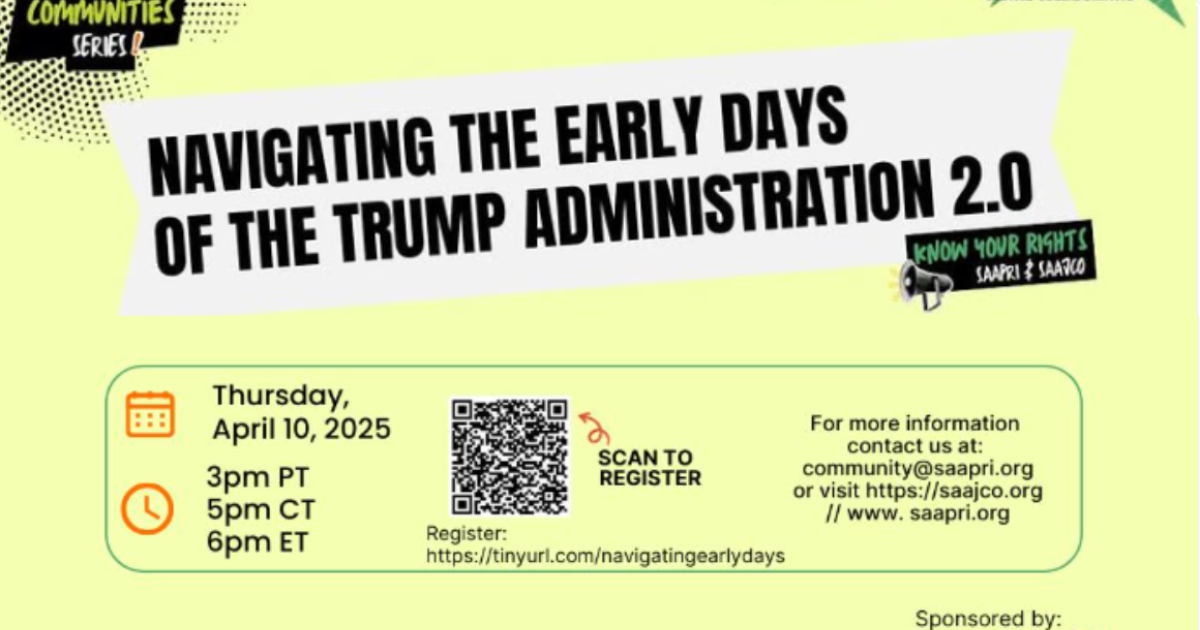Zuckerberg's Next Chapter: Navigating The Trump Presidency

Table of Contents
The Rise of Misinformation and Facebook's Response
The 2016 US presidential election exposed significant vulnerabilities in Facebook's ability to combat the spread of misinformation. The platform became a battleground for fake news, impacting voter perceptions and potentially influencing the election outcome.
Combating Fake News
Facebook's initial response to the flood of fake news was widely criticized as inadequate. The platform struggled to identify and remove false content quickly enough, leading to concerns about its role in disseminating misinformation. However, in the wake of the election, Facebook significantly increased its efforts to address this problem.
- Increased investment in AI detection: Facebook invested heavily in artificial intelligence to improve its ability to automatically detect and flag potentially false content.
- Third-party fact-checker programs: Partnerships with independent fact-checking organizations were established to verify the accuracy of news articles and posts.
- User reporting mechanisms: Facebook enhanced its user reporting system, allowing users to easily flag suspicious content for review.
- Label implementation: Facebook began labeling potentially false content with warnings and links to fact-checking articles.
Despite these efforts, criticism persisted. Accusations of bias in fact-checking and censorship of conservative viewpoints frequently surfaced, highlighting the inherent challenges in moderating content while upholding principles of free speech.
Foreign Interference and Election Security
The 2016 election also revealed the extent of foreign interference in online political discourse. Russian-linked entities used Facebook to spread propaganda, sow discord, and attempt to influence the election results. This prompted increased scrutiny of Facebook's role in protecting democratic processes.
- Increased scrutiny of ad transparency: Facebook implemented stricter requirements for political advertising transparency, forcing advertisers to disclose their identities and funding sources.
- Banning foreign-linked accounts: The platform began actively identifying and banning accounts linked to foreign governments or actors engaged in coordinated disinformation campaigns.
- Enhanced security protocols: Facebook invested in improved security measures to detect and prevent future attempts at foreign interference.
While these measures were significant steps, the challenge of preventing foreign interference remains ongoing. The evolving tactics employed by malicious actors require constant adaptation and innovation from social media platforms like Facebook.
Political Polarization and the Algorithm's Influence
Facebook's algorithm, designed to personalize user experiences, inadvertently contributed to the growth of echo chambers and filter bubbles. Users were increasingly exposed only to information that reinforced their existing beliefs, exacerbating political polarization.
The Algorithm's Role in Echo Chambers
The algorithmic amplification of partisan content contributed significantly to the increasingly divided political landscape. This phenomenon led to intense debates about the responsibility of social media companies in shaping public opinion.
- Algorithm transparency concerns: Calls for greater transparency regarding Facebook's algorithm grew louder, with demands for more public understanding of how content is ranked and displayed.
- Discussions about algorithmic bias: Concerns arose about potential biases embedded within the algorithm, leading to unequal distribution of information across different political groups.
- Calls for algorithmic reform: Many advocated for significant reforms to the algorithm to mitigate the creation of echo chambers and promote exposure to diverse perspectives.
Balancing Free Speech and Content Moderation
Facebook faced the difficult task of balancing its commitment to free speech with the need to moderate harmful content, such as hate speech, misinformation, and incitement to violence. This became increasingly challenging during the Trump presidency, as political rhetoric became more inflammatory and divisive.
- Balancing free speech with responsibility: The tension between free expression and the prevention of harm became a central theme in the debate surrounding social media regulation.
- Evolving content moderation policies: Facebook's content moderation policies underwent continuous evolution, attempting to address the ever-changing nature of online abuse and disinformation.
- Challenges in regulating hate speech and misinformation: Defining and enforcing content moderation policies in a politically charged environment proved exceptionally difficult, leading to frequent criticism and calls for greater accountability.
Zuckerberg's Testimony and Public Scrutiny
Zuckerberg's appearances before Congress during the Trump presidency brought intense scrutiny to Facebook's practices and his leadership. These high-profile hearings significantly impacted public perception of the company.
High-Profile Congressional Hearings
Zuckerberg's testimony revealed divisions within Facebook itself regarding content moderation and the role of the platform in spreading misinformation. These hearings exposed the complexities of regulating social media and the challenges in balancing free speech and responsible content moderation.
- Key points of testimony: Zuckerberg's responses to questions about Russian interference, misinformation, and data privacy were highly scrutinized and widely debated.
- Public reaction to Zuckerberg's responses: Public opinion was divided, with some believing Zuckerberg was evasive while others defended Facebook's efforts to address the challenges.
- Subsequent policy changes: The hearings led to pressure for further policy changes, including increased transparency and stricter enforcement of content moderation policies.
The Impact on Facebook's Reputation and Stock Price
The controversies surrounding Facebook during the Trump presidency had a significant impact on its reputation and stock price. Negative publicity and regulatory scrutiny affected investor confidence and public perception of the platform.
- Stock market fluctuations: Facebook's stock price experienced fluctuations in response to major controversies and regulatory developments.
- Public opinion polls: Public opinion polls reflected a decline in trust and approval ratings for Facebook during this period.
- Impact on advertising revenue: Concerns about brand safety and data privacy led to some advertisers reducing their spending on the platform.
Conclusion
Zuckerberg's leadership during the Trump presidency marked a pivotal moment in the relationship between social media, politics, and public discourse. The "Zuckerberg Trump Presidency" era highlighted the complexities of managing a platform with immense reach and influence. Navigating misinformation, political polarization, and intense scrutiny required a constantly evolving strategy, one which continues to shape Facebook's trajectory today. The challenges of balancing free speech with responsibility, combating foreign interference, and mitigating the effects of algorithmic bias remain central to the ongoing debate surrounding social media's role in a democratic society. Understanding how Zuckerberg navigated this critical period – the Zuckerberg Trump Presidency – is crucial for grasping the future of social media and its influence on global politics. Further research and critical analysis of this period are essential for informed discussion about responsible social media usage and effective content moderation strategies.

Featured Posts
-
 Zaboravljeni Film S Travoltom Tarantinov Razlog Za Odbijanje
Apr 24, 2025
Zaboravljeni Film S Travoltom Tarantinov Razlog Za Odbijanje
Apr 24, 2025 -
 Columbia Student Mahmoud Khalil Denied Permission To Attend Sons Birth By Ice
Apr 24, 2025
Columbia Student Mahmoud Khalil Denied Permission To Attend Sons Birth By Ice
Apr 24, 2025 -
 Gambling On Disaster Examining The La Wildfire Betting Phenomenon
Apr 24, 2025
Gambling On Disaster Examining The La Wildfire Betting Phenomenon
Apr 24, 2025 -
 Usd Strengthens Dollar Gains Against Major Currencies As Trumps Fed Criticism Eases
Apr 24, 2025
Usd Strengthens Dollar Gains Against Major Currencies As Trumps Fed Criticism Eases
Apr 24, 2025 -
 Canadian Dollar Weakening Against Major Currencies
Apr 24, 2025
Canadian Dollar Weakening Against Major Currencies
Apr 24, 2025
Latest Posts
-
 Trumps Presidency A Deep Dive Into Day 109 May 8th 2025
May 10, 2025
Trumps Presidency A Deep Dive Into Day 109 May 8th 2025
May 10, 2025 -
 High Potential Episode Count Season 2 Renewal Information And Return Date
May 10, 2025
High Potential Episode Count Season 2 Renewal Information And Return Date
May 10, 2025 -
 High Potential Season 1 Underrated Characters Season 2 Fate
May 10, 2025
High Potential Season 1 Underrated Characters Season 2 Fate
May 10, 2025 -
 Revealed The Actor Playing David In High Potential Episode 13 And The Casting Choices Significance
May 10, 2025
Revealed The Actor Playing David In High Potential Episode 13 And The Casting Choices Significance
May 10, 2025 -
 Could This Show Spoil Romans Fate In Show Name Season 2 Streaming Info Included
May 10, 2025
Could This Show Spoil Romans Fate In Show Name Season 2 Streaming Info Included
May 10, 2025
